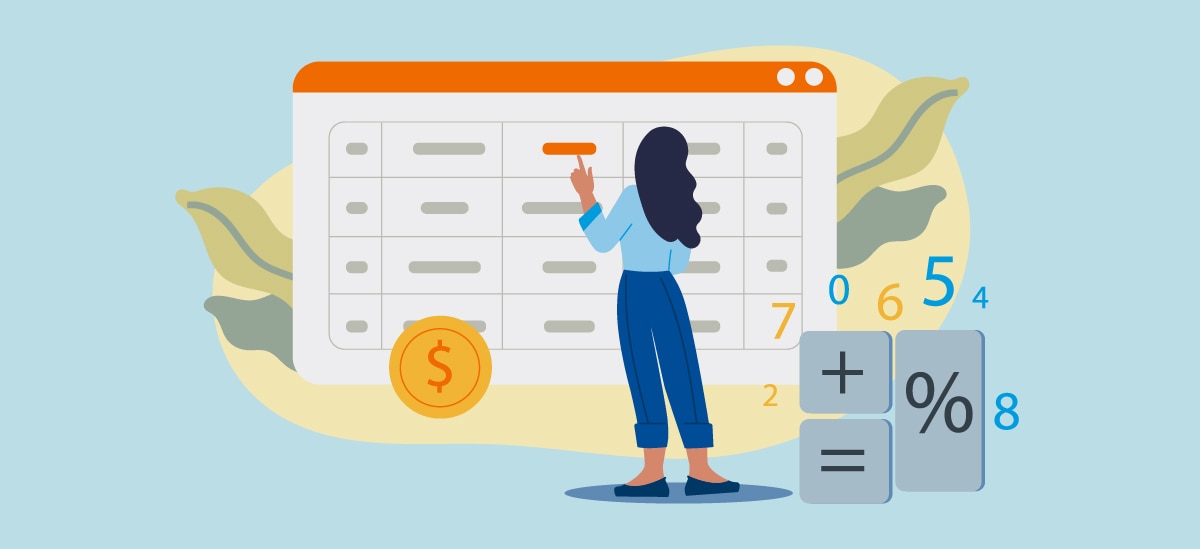
If you're in the middle of repaying a personal loan, you may be looking for options that can either save you money or help you enjoy more affordable monthly payments.
Yes, of course the loan still needs to be repaid to the lender. But if you want to lower your payment, lower your rate or repay at a different pace, refinancing into a new personal can offer such advantages for those that qualify.
What is a refinance? Simply put, it’s when you open a new loan with a better interest rate or updated repayment terms to pay off your current loan.
It’s a valuable tool that many borrowers employ. Many will restructure their loans to make payments over a longer period, thereby lowering the amount of their monthly payments. Others, when conditions are right, may choose to refinance to save money on total interest paid either with a lower rate or shorter repayment terms.[1]
"Often, a borrower's financial situation will change after the loan has been made. As a result, they want to change the conditions of the loan to fit their current circumstances," states Harjas Sidhu, PNC's Head of Personal and Student Lending.
Refinancing May Save You Money
One common reason people refinance a loan is to enjoy lower monthly payments. It is important to be aware of other factors that could make refinancing a good idea.
"As one example, let's say your income or credit score has significantly improved over the course of the loan," explains Sidhu. "In that situation, it's worth investigating if you now qualify for a lower interest rate. In the right circumstances, you could lower your monthly payments."
However, especially with rising interest rates across the financial industry, timing matters. According to Ana Derrick, Product Manager for Personal Lending, it's important to monitor the interest rate environment and know if your credit score has improved to determine if refinancing is right for you.
"We've recently experienced an uptick in interest rates. So, if you obtained a loan a few years ago, you may be hard-pressed to find a better rate. The same is true if your income has decreased or credit score has taken a turn for the worse. In either case, it probably wouldn't make sense to refinance your loan at what would likely be a higher interest rate which results in higher monthly payments."
An exception to this? Utilizing a new personal loan for debt consolidation. Derrick continues. "If, for example, you have accrued a lot of credit card debt and are now facing high interest payments, then paying off those credit cards with a personal loan can make a lot of sense. The interest rate you would pay on a personal loan would likely be lower than that of your credit cards."
Finally, while interest rates are currently on the upswing, the day might come when they drop once again. When that happens, look for opportunities to refinance at a markedly lower rate.
Change The Length Of The Terms
When a borrower wants to have lower monthly payments, another option is to refinance with a longer repayment term compared to the original loan.
“The longer the term of the loan, the lower the monthly payment will be,” Sidhu continues. “However, it’s important to know that there will be a trade-off in the form of paying more total interest over the term of the loan.”
It's not always about the lower monthly payment. People sometimes refinance to shorten the term of the loan and therefore, the total amount of interest paid.
"Sometimes, particularly when a borrower now has an increase in income, he or she might want to actually shorten the term of the loan," Sidhu offers . "Yes, the monthly payment would be higher in those situations, but the lower total interest paid on the loan might make this a smart financial move."
Other Key Things To Know
When considering borrowing for just about any reason, it's crucial that you know your credit score. And before you apply, it's important to address any issues that arise on your credit report.
"Your FICO® score and credit history determine so much when it comes to a refinance," offers Derrick. "Because if your credit score has improved over time, you’re more likely to qualify for more favorable terms, including a better interest rate."
How to Improve Your Credit Score: 5 Things to Try I PNC Insights
It's important to know that refinancing will require an application and approval process. With that in mind, expect a level of scrutiny as the lender reviews your application. After all, your income, credit score, and debt-to-income ratio may have changed over time. Therefore, the lender needs to determine if you qualify for the new loan and, if so, at what rate, repayment term and payment.[2]
When you apply to refinance, preparation is key. Be ready to supply information such as your Social Security number as well as employment information and annual income. The lender may need to verify employment and income as part of their review process.
Finally, know that there are other considerations to consider before refinancing. For example, your original loan may have a pre-payment penalty, meaning you pay additional fees to the lender when paying off the original loan earlier than scheduled. And when opening a new loan to refinance, you may have to pay origination and application fees. Be certain to check on each of these potential costs before deciding whether refinancing is ultimately right for you.
Overall, refinancing may be beneficial financially, to save money and help create a stronger financial foundation. At the same time, it's important to know if the timing and the conditions for refinancing make sense for you. If you are considering refinancing, a financial professional can help you weigh the pros and cons.




